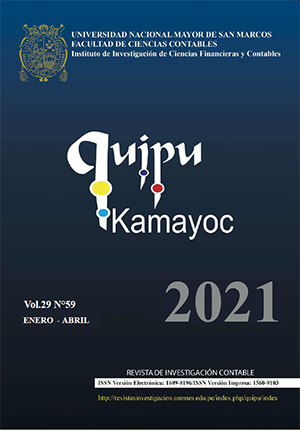The total quality services and business productivity of receptive turism in Miraflores, 2019
DOI:
https://doi.org/10.15381/quipu.v29i59.20192Keywords:
total quality, productivity, informality, quality management, travel agencyAbstract
Objective: This study aims to determine the relationship between service quality and business’ productivity of receptive tourism travel agencies in Miraflores (Lima, Peru), during the period of 2019. Method: The research was applied and empirical, has a non-experimental cross-sectional correlation, with a quantitative approach. The sample was made up of 50 tourist service providers from different travel agencies located in Miraflores district. Results: The results of the research show a strong and positive association of variables and dimensions. From a total of 50 tourist providers; 23 of the surveyed, which represents a 46%, stated the existence of a very good relationship between the variables of service quality and business’ productivity. Conclusion: The results indicate that the level of the travel agencies’ service quality has greatly decreased due to factors such as informality and the low percentage (9.7%) of travel agencies that have good practice application systems or quality management systems. Therefore, the study aims to improve the tourist agencies’ competitiveness and exceed the demands of the global market.
Downloads
Downloads
Published
Issue
Section
License
Copyright (c) 2021 Sara Susana Huayta Bautista

This work is licensed under a Creative Commons Attribution 4.0 International License.
AUTHORS RETAIN THEIR RIGHTS:
a. Authors retain their trade mark rights and patent, and also on any process or procedure described in the article.
b. Authors retain their right to share, copy, distribute, perform and publicly communicate their article (eg, to place their article in an institutional repository or publish it in a book), with an acknowledgment of its initial publication in Quipukamayoc .
c. Authors retain theirs right to make a subsequent publication of their work, to use the article or any part thereof (eg a compilation of his papers, lecture notes, thesis, or a book), always indicating the source of publication (the originator of the work, journal, volume, number and date).






